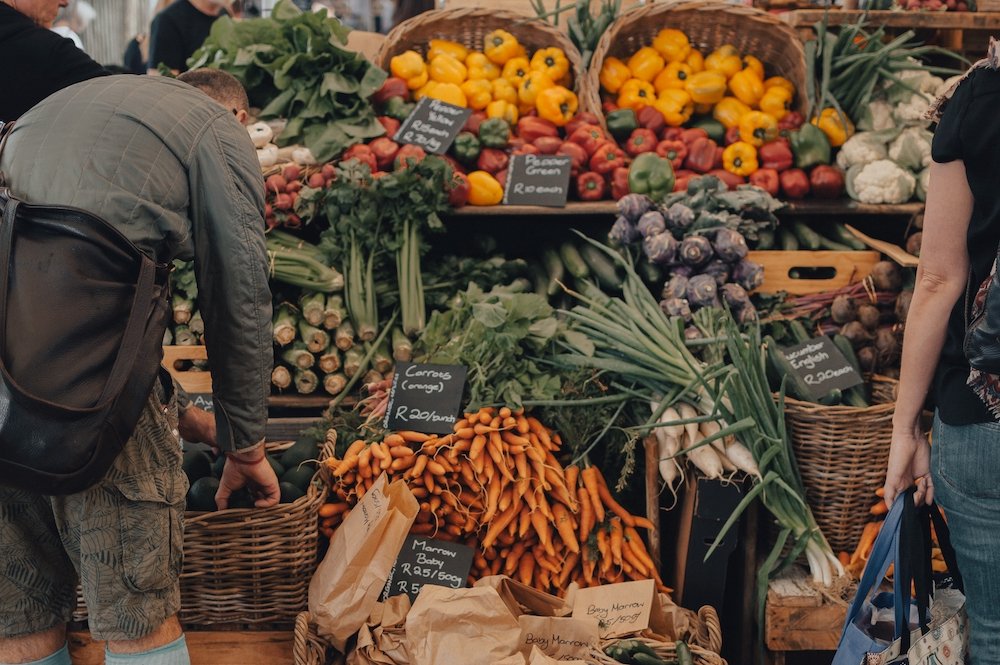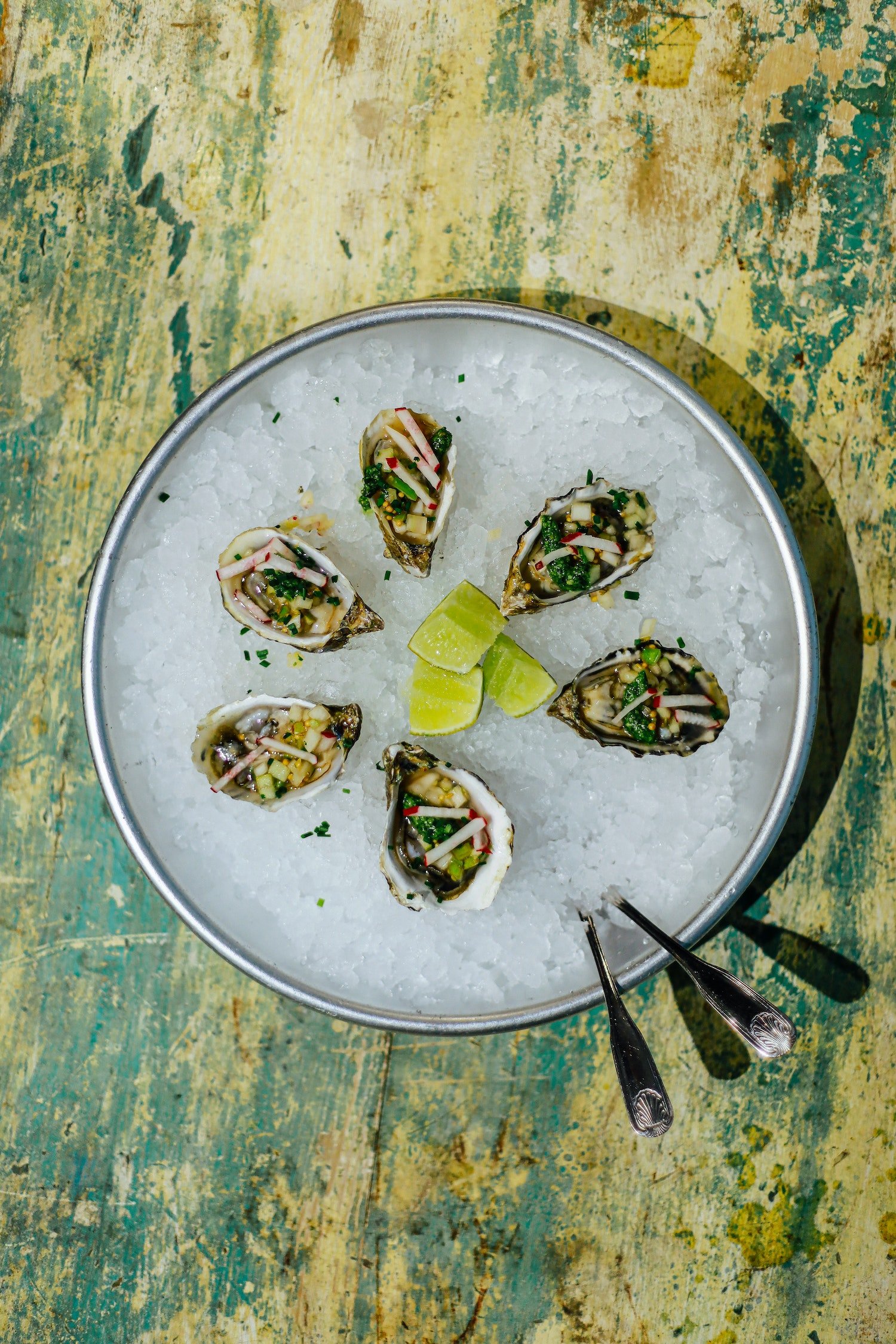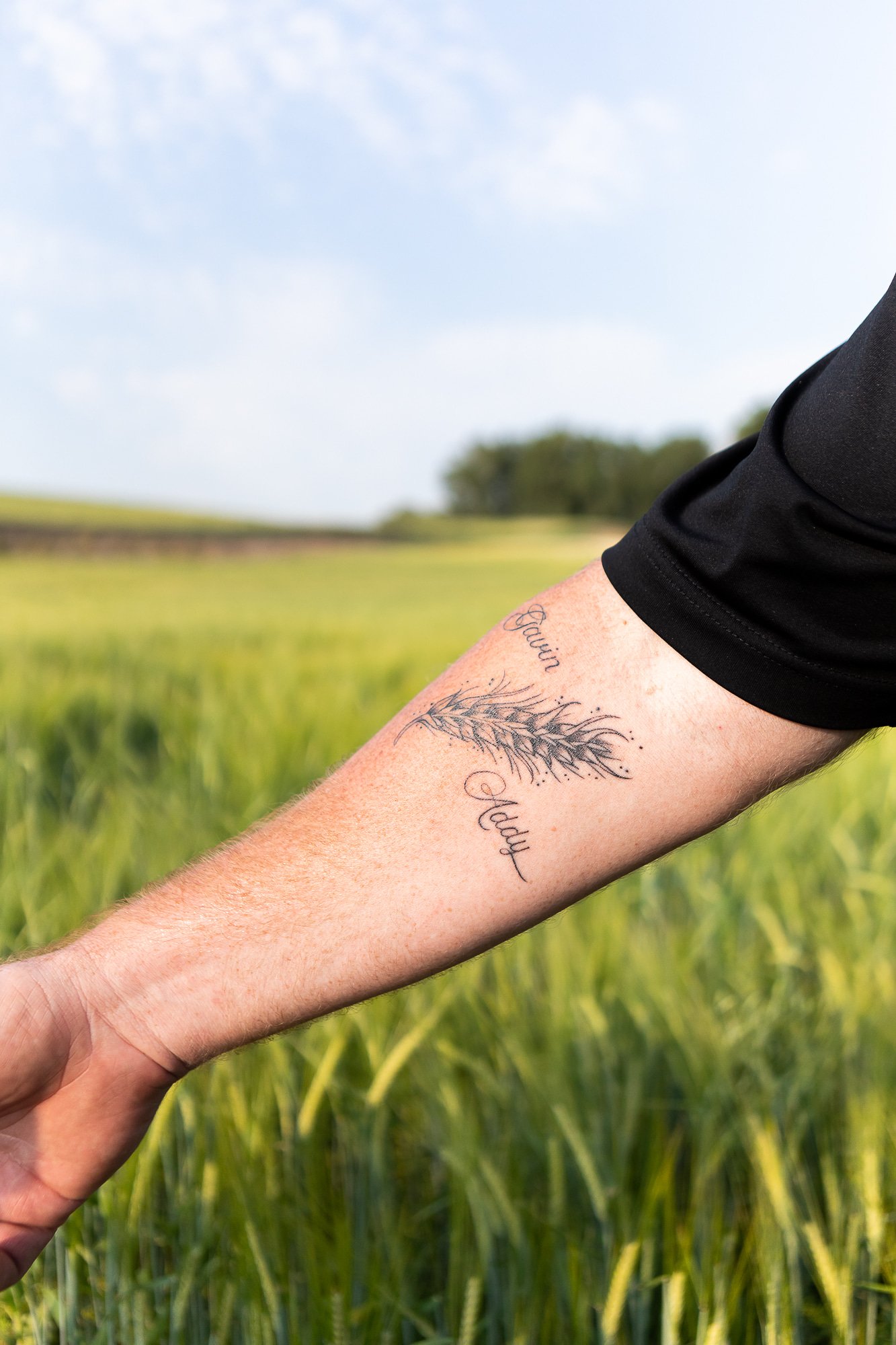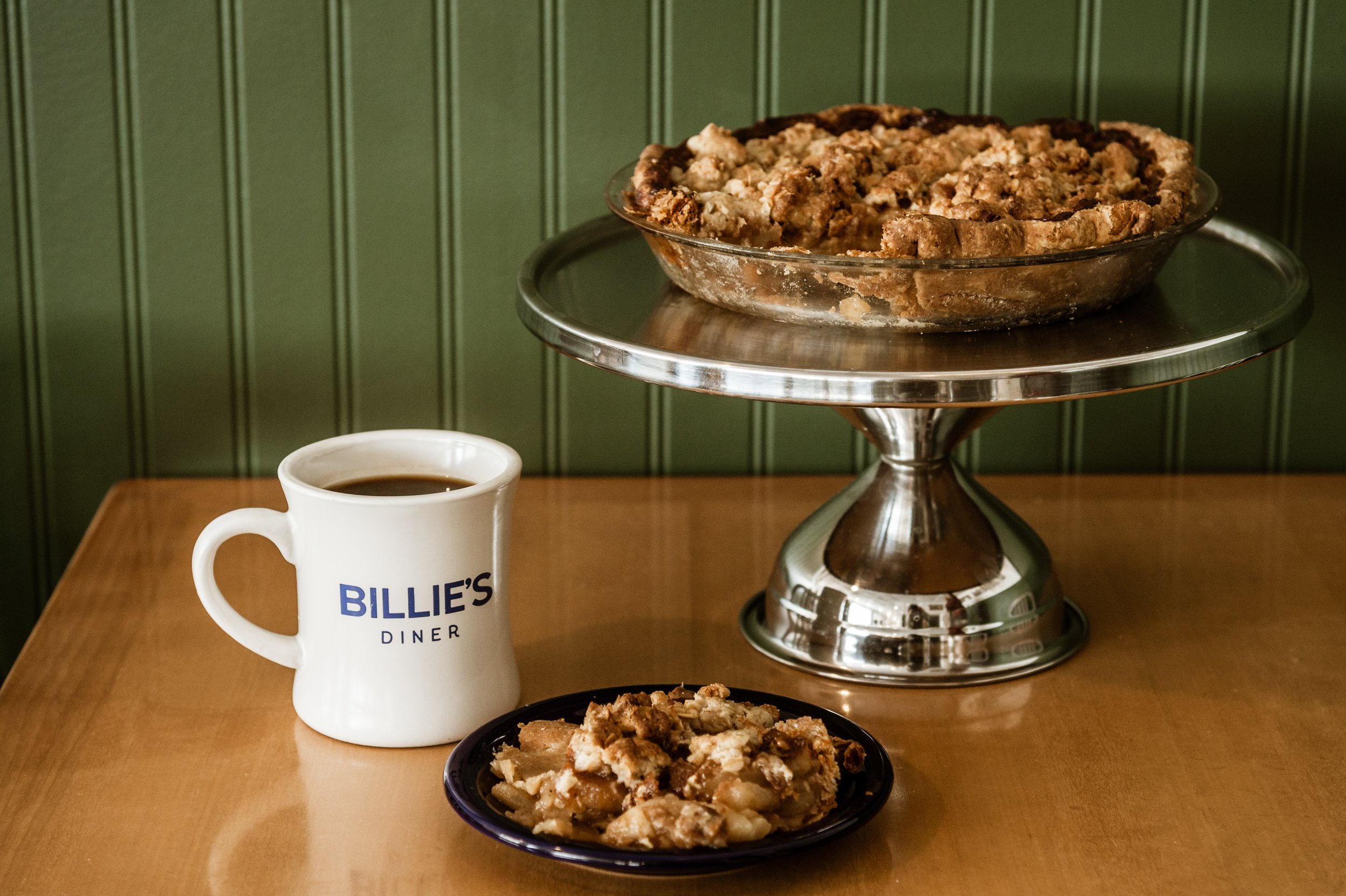Ten Years of Casa Cano Farms
Ten Years of Casa Cano Farms
BY SYDNEY FLUKER
A little over a decade ago, Jorge Cano and Madyson Versteeg were students at Ferris High School. Aside from being the place where the two high school sweethearts started dating, Ferris is also where the earliest seeds of Casa Cano Farms were planted.
Neither Cano nor Versteeg come from farming backgrounds — both were born and raised on the South Hill, and their only exposure to growing food from soil was through their families’ gardens. But a lecture by their environmental science teacher on sustainable agriculture sparked an interest, and a couple years later, Versteeg and Cano found themselves studying Sustainable Food and Farming at the University of Montana.
“[The university] helped instill our love for farming,” Cano says. “Even through the hard times of our business, we’ve had that passion to keep going.”
Following graduation, Versteeg spent a year working at FoodCorps for AmeriCorps in Billings, Montana, where she ran a gardening program for kids. When her year of service was complete, she returned to Spokane and the couple began looking for land.
The Early Years
22 years old and fresh out of college, Versteeg and Cano started their farm with the help of the Farm Service Agency’s Beginning Farmers and Ranchers Loans.
In search of a property that would bring their farm dream to life, Cano and Versteeg found land 12 miles south of Downtown Spokane in Valleyford. The land had been a pig farm, passed along from married couple to married couple. Cano and Versteeg bought the land from a woman named Josephine and her husband Darrell — the former relieved the land would stay a family farm.
“She knew we wanted to farm here and that was one of the reasons why she sold to us — she was hopeful that we would be able to pull off what we’ve since pulled off,” Cano says.
A few years ago, Josephine visited the farm, where Cano and Versteeg showed her all they had built. Her grandkids have stepped in from time to time as well, some of the many customers Versteeg and Cano have grown to recognize over the years.
Photo by Nico Lopez
Armed with undergraduate degrees and experience in sustainable agriculture, the young couple approached their land with care and a vision of bringing the damaged soil back to life.
“From the beginning, we knew we wanted to be organic,” Versteeg says. “We wanted to be no-till, which was very important to us that first year.”
No-till farming is an agricultural practice for growing crops or pasture without disturbing the soil through tillage, thus decreasing the amount of soil erosion, especially in dry soils on sloping terrain. Casa Cano Farms lives on the edge of the Palouse and has shallow soil sitting on basalt, which was overgrazed and covered in weeds when they first bought the farm.
They tried a mix of different methods their first year, from flipping sod to paper mulch. However, the couple transitioned to minimal till as they noticed their no-till methods faltering, choosing a walking tractor instead to cut back on harm.
As they readied the land for produce to be grown, Cano and Versteeg introduced pigs, cows, chickens and ducks, knowing they wanted to incorporate livestock into their farm. They built their greenhouse, established the garden and slowly built up Casa Cano Farms into the operation it is today.
Today
Everything on the 62-acre property, from the gate to the greenhouse to the sleek-but-still-country farmstand, was built by hand. Cano and Versteeg grow vegetables on about 1 acre in the 5-acre deer fence wrapping around their homestead. The cows graze on the remaining land, mooching off of 140 acres from neighboring properties.
The farmstand alone is worth a trek out to the farm, exploding with produce from local farms in the area. A white sloping roof and antique oak accents mimic the traditional farmhouse style,
but it's the gray wooden walls that give the building a modern twist. Their logo sits proudly toward the top of the arch, its deep red font illuminated by two lamps of the same shade. The inside is even more impressive — smooth concrete floors, produce organized like you’d find in an average grocery store, an electronic checkout section that Cano and Versteeg trust customers to use without supervision and even a Casa Cano merchandise section.
In the last year, Cano and Versteeg began buying products from other small farms, so you can find goodies like organic mushrooms from Happy Mountain Mushrooms and flowers from Snapdragon Flower Farm. Everything at the farmstand is locally-sourced, even offering kimchi, peanuts, seafood and chips; nothing farther than the other side of the state.
Photo by Nico Lopez
“We’re growing into this community that we’re part of and are trying to help share what we’re all doing with the public,” Cano says. “Now that we’ve finished this store, we have a nice retail space which has allowed us to do that. It’s been really cool.”
Aside from the farmstand, Casa Cano Farms has a CSA program and sells their products to local restaurants, like Luna, South Perry Pizza and Wild Sage. Recently, they began selling to smaller schools and nonprofits around Spokane — a dream of Versteeg’s come to life.
This year, the couple acquired a processing license to be able to prepare ready-to-eat foods from their farm. They secured a grant from NorthEast Washington ESD 101 to buy apple and vegetable slicers, which will be used to process their produce that will eventually be sold back to a few local public schools. Dried apple slices are the current specialty with plans to expand offerings soon.
A little over a year ago, Cano and Versteeg brought on their first official employee, Roberto, and soon after hired Cano’s brother, Alex. The couple had worked with a few employees and interns when they were first starting out, but then spent seven years working alone with the help of family when needed. They now also have a full-time intern, meaning Casa Cano supports five full-time employees — no small feat for a small farm. Having been in the agriculture game for a decade now, Cano and Versteeg have seen a lot of growth to Spokane’s farming scene as younger farmers enter the stage.
Cano and Versteeg, both 33, are veterans in the Spokane farming community, but are still about 25 years younger than the average age of American farmers. The United States Department of
Agriculture’s 2022 Census of Agriculture report found the average age to be 58.1 years old and aging, with only 30% being under 35. Still, Versteeg and Cano note that Spokane’s farm scene is gradually beginning to skew younger as other first-generation farmers step up to the challenge.
“Anytime someone wants to come out and talk to us or walk around and see what we’ve done,
we say yes,” Cano says. “Having people out here to help them skip some of the mistakes that we’ve made is important to us.”
“When we first started, we didn’t really feel like we had peers in the area we could rely on,”
Versteeg adds. “Now, new farms are reaching out on Instagram and we just feel more connected to our community. It seems more collaborative than competitive at this point.”
The philosophy behind Casa Cano Farms has also evolved over the years but remains true to its core: to grow the best they can.
Two years ago, the farm returned to its no-till practices, selling off the tractor and quitting their minimal tilling lifestyle cold turkey. Last year, they started making compost tea to focus on microbiology and growing the whole farm ecosystem, and have noticed positive results.Versteeg and Cano divide and conquer when it comes to daily tasks, with Versteeg focusing on the garden and Cano managing the herd of cows. Casa Cano uses regenerative farming techniques, meaning Cano moves the cattle to different areas of the farm using electric fencing throughout the week to keep the land healthy. Grass-fed and grass-finished, Casa Cano’s herds are more than the meat they produce.
“Our cows are our best land management tool,” Cano says. “They mow, fertilize, irrigate and stimulate biology, all the while converting the land’s energy into beef. We move our cows daily to stimulate the land through intensive grazing followed by an extensive rest. This intensity results in a brief high impact disturbance on the land; grass and weeds are grazed, brush is knocked flat, manure and urine are deposited, drops of drool spread microorganisms and birds and bugs follow in tow.”
This regenerative style of grazing is healthy both for the cows and the land. The cows spend eleven months grazing the property, spending one winter month in the barn so their manure can be used for fertilizer for the year. In return, their outdoor grazing increases microorganisms, helping heal the soil as it produces more nutritious grass, which is in turn more nutritious for the cattle.
“Life begets life,” Versteeg says.
Maybe this practice is why beef is Versteeg’s favorite Casa Cano product, which she likes to cook with whatever vegetables are seasonally available.
Though the couple is proud of how far they’ve come, they still look toward the next decade of Casa Cano Farms with excitement and hopes for expansion. Dreams of educating the next generation of farmers is next on the list for these high-school-sweethearts-turned-full-time farmers.































